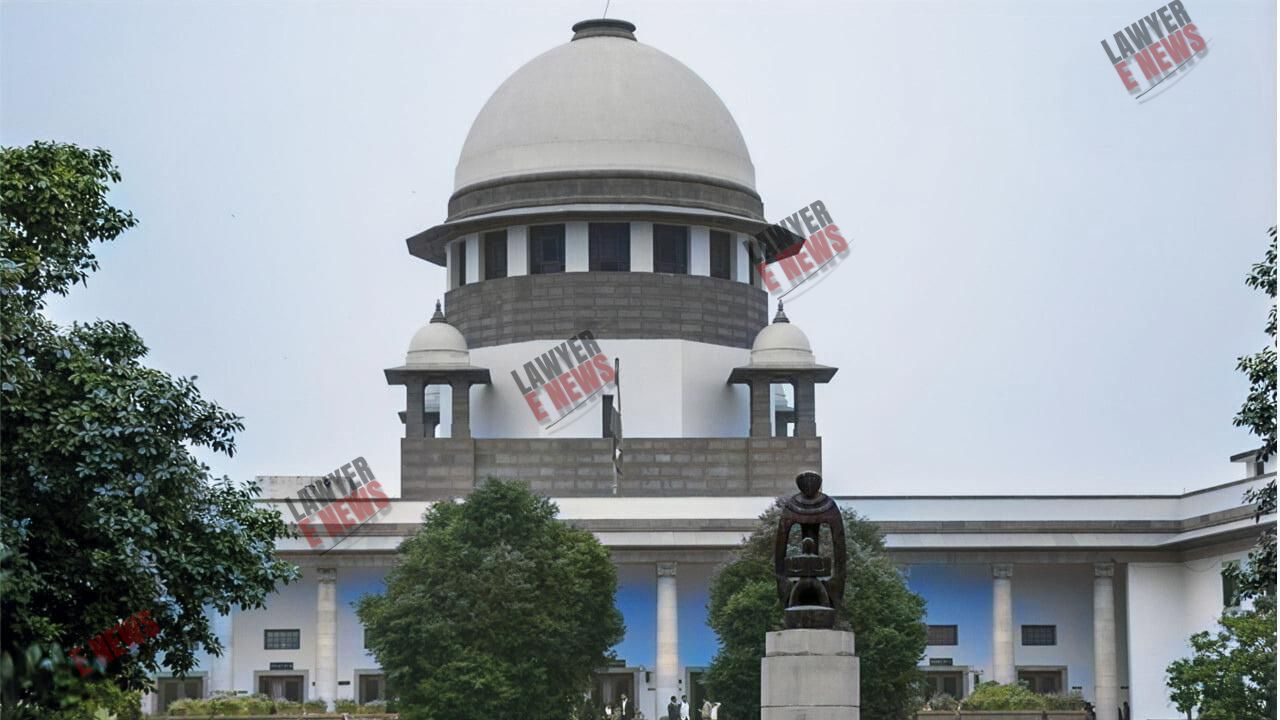-
by Admin
16 February 2026 1:47 PM



Not the Date of Notification, But the Last Date of Application or Completion Before - Appointment Determines Eligibility—Supreme Court in Major Relief to 2020–22 D.El.Ed. Batch. Supreme Court of India, in the case of Soumen Paul & Others v. Shrabani Nayek & Others, delivered a critical judgment clarifying the interpretation of Rule 6(2) of the West Bengal Primary School Teachers Recruitment Rules, 2016. The Court set aside the Calcutta High Court’s order that had disqualified thousands of aspiring teachers, holding that “the provision does not fix a cut-off date for obtaining educational qualifications.” The Supreme Court concluded that the eligibility of candidates must be assessed either on the last date of application or at the time of selection, not on an earlier arbitrary date like the issuance of an administrative notice.
The Court categorically stated, “The purpose and object of the rule is not at all to declare a cut-off date for obtaining the qualifications.” Emphasising the intent behind the rule, it observed, “It adopts the standard legislative device of simply incorporating and referring to the minimum qualifications as prescribed by NCTE.” Thus, the Court held that the rule is meant to incorporate the prevailing qualification norms as prescribed by the National Council for Teacher Education, and not to exclude those who were nearing completion of their D.El.Ed. course at the time of notification.
“Recruitment Notification Dated 21.10.2022 is the Legal Trigger—Not the Earlier
Notice Dated 29.09.2022”
The Supreme Court clarified the central confusion that had misled the Division Bench of the High Court. The High Court had treated the 29.09.2022 administrative notice as the actual recruitment notification and declared that only candidates qualified as of that date were eligible. The Supreme Court struck down this view, holding that, “The notification dated 29.09.2022 cannot at all be termed as the 2022 recruitment notification. It is rather an introduction to the recruitment notification which was published on 21.10.2022.”
The Court noted, “The recruitment notification occupies an important position in the recruitment process… candidates must be informed of the rules and regulations that would apply for considering eligibility.” Since the 21.10.2022 notification explicitly allowed D.El.Ed. 2020–22 batch candidates who had completed Part-I and were awaiting Part-II results to apply, the Court held that this declaration had to be honoured.
“Law is Settled—Eligibility Must Be Determined With Reference to the Last Date for Submitting Applications”
Referring to a long line of precedents, the Court reaffirmed that eligibility for public recruitment must be judged with reference to either the date prescribed by the rules or the last date for submitting applications, if no such date is mentioned. Citing Bhupinderpal Singh v. State of Punjab, Rakesh Kumar Sharma v. State (NCT of Delhi) and the Constitution Bench decision in Tej Prakash Pathak v. Rajasthan High Court, the Supreme Court reiterated: “Cut-off date with reference to which eligibility has to be determined is the date appointed by the relevant service rules; where no such cutoff date is provided in the rules, then it will be the date appointed in the advertisement inviting applications; and if there is no such date appointed, then eligibility criteria shall be applied by reference to the last date appointed by which the applications were to be received.”
Thus, the Court categorically rejected the High Court’s restrictive interpretation, stating, “The interpretation of Rule 6(2) adopted by the Division Bench is incorrect and the judgment on this issue is hereby set aside.”
“Candidates Did Everything Lawfully—They Cannot Be Punished for COVID Delays”
The Court appreciated the timely and proactive action of the appellants. They approached the High Court even before the recruitment process began, seeking early declaration of results or a deferral of the process. Noting this, the Court observed, “The appellants invoked the jurisdiction of the High Court with a prayer for
immediate declaration of their results in D.El.Ed., or in alternative, to direct the State Government not to initiate the recruitment process pending declaration of their results.”
The Board itself had assured the Single Judge that such candidates would be permitted to apply. The Supreme Court acknowledged this, stating, “The learned Single Judge was not compromising on the standard prescribed for appointment. The direction enabled candidates such as the appellant who were at the verge of completing the course to participate in the selection process, and they would have been appointed only upon attaining the prescribed qualifications.”
“This Is a Fit Case for Exercise of Article 142 to Do Complete Justice”
Even assuming any ambiguity in the recruitment framework, the Court firmly held that the equities of the case demanded the invocation of its constitutional powers under Article 142. Referring to its past exercise of such jurisdiction in Bhupinderpal Singh, the Court concluded, “We have no hesitation in exercising our power and jurisdiction under Article 142 of the Constitution to do complete justice for the parties.”
Final Conclusion: High Court Order Set Aside, Recruitment Process to Continue
The Supreme Court allowed the appeal and directed, “The recruitment process which commenced under notification dated 21.10.2022 must proceed further and the Board must take immediate steps for concluding the recruitment process as expeditiously as possible.”
Reinforcing the transparency of the recruitment, the Court emphasized, “The recruitment notification dated 21.10.2022 indicated that the appellants will be given an opportunity, and that intendment must inure to their benefit.”
Date of Decision: April 4, 2025
